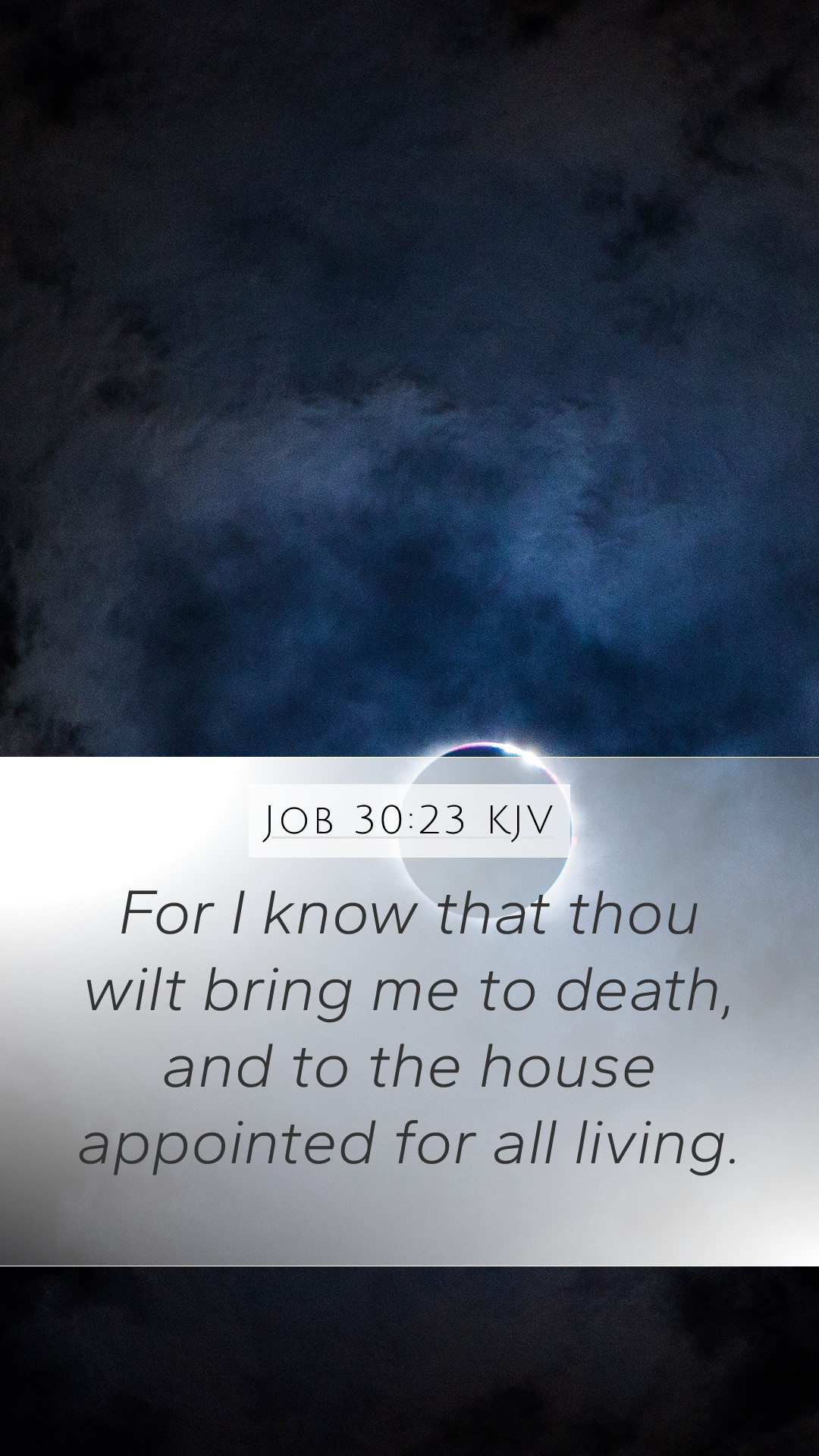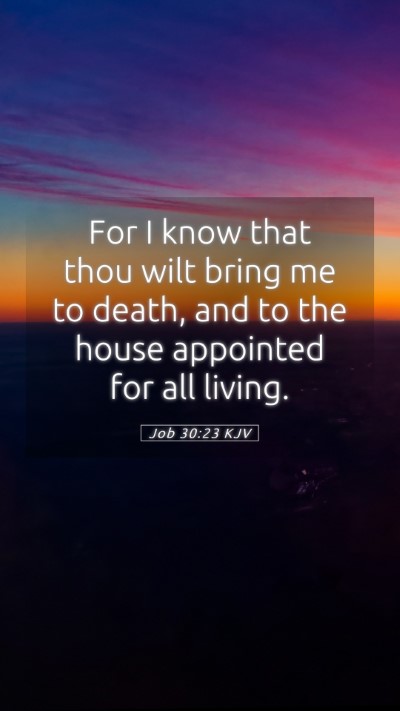Understanding Job 30:23
Job 30:23 states, “For I know that thou wilt bring me to death, and to the house appointed for all living.” This verse encapsulates Job's understanding of mortality and serves as a poignant reflection on human suffering and God's sovereignty. Below, we explore various interpretations and insights from public domain commentaries to enrich our Bible verse understanding.
Contextual Analysis
Job, after enduring immense suffering, speaks here to emphasize his awareness of life's fragility and the certainty of death. In the larger context of the Book of Job, this verse is significant as it conveys profound truths about human existence and the inevitability of death, contrasting sharply with the responses from his friends who advocate an understanding of suffering tied only to sin.
Commentary Insights
Matthew Henry’s Commentary
Matthew Henry points out that Job acknowledges the reality of death, which he refers to as “the house appointed for all living.” This metaphor indicates that death is a common destination, and no one escapes this reality. Henry notes that Job’s understanding reflects a deep insight into the human condition—death is not merely an end but part of life’s journey.
Albert Barnes’ Notes
Albert Barnes explains that Job’s statement illustrates his resignation to the inevitability of death despite his desire for vindication during his suffering. Barnes emphasizes that Job's recognition of death serves as a reminder of human limitations and the futility of attempting to escape one's fate. He argues that this acknowledgment can lead to consolation, knowing that God is ultimately in control even in death.
Adam Clarke’s Commentary
Adam Clarke highlights the emotive aspect of Job’s statement, reflecting both fear and acceptance. He suggests that Job expresses a poignant awareness of the impending judgment and mortality, which resonates deeply with readers. Clarke encourages the reader to reflect on the spiritual implications of death and how it can inspire a quest for a deeper relationship with God.
Thematic Exploration
The recurring themes within Job 30:23 include:
- The Reality of Death: This verse speaks to an unavoidably shared human experience.
- Divine Sovereignty: Job acknowledges God's dominion over life and death.
- The Nature of Suffering: The passage prompts reflection on the reasons behind suffering and the human inclination to seek answers.
Biblical Cross-References
For a comprehensive understanding of this verse, consider the following related scriptures:
- Ecclesiastes 3:2: “A time to be born, and a time to die...”
- Psalm 39:4-5: “Lord, make me to know my end and what is the measure of my days...”
- Hebrews 9:27: “And as it is appointed unto men once to die, but after this the judgment.”
Application in Bible Study
Incorporating Job 30:23 into your Bible study insights can enhance understanding of life’s transient nature. Here are suggestions for applying this verse:
- Contemplate Mortality: Engage in discussions on the significance of death in various religious contexts.
- Understanding Suffering: Explore personal and collective suffering and how they shape faith.
- Engagement in Prayer: Encourage prayers focusing on acceptance and solace in the face of grief.
Conclusion
Job 30:23 serves as a profound reminder of the human condition—the inevitability of death, the importance of grappling with the reality of suffering, and the ultimate sovereignty of God over life. By studying this verse, we gain deep Bible verse explanations that not only inform but also invite personal reflection and communal discussion. Embrace these insights in your Bible study groups or online Bible study sessions to foster a richer understanding of Scripture.


